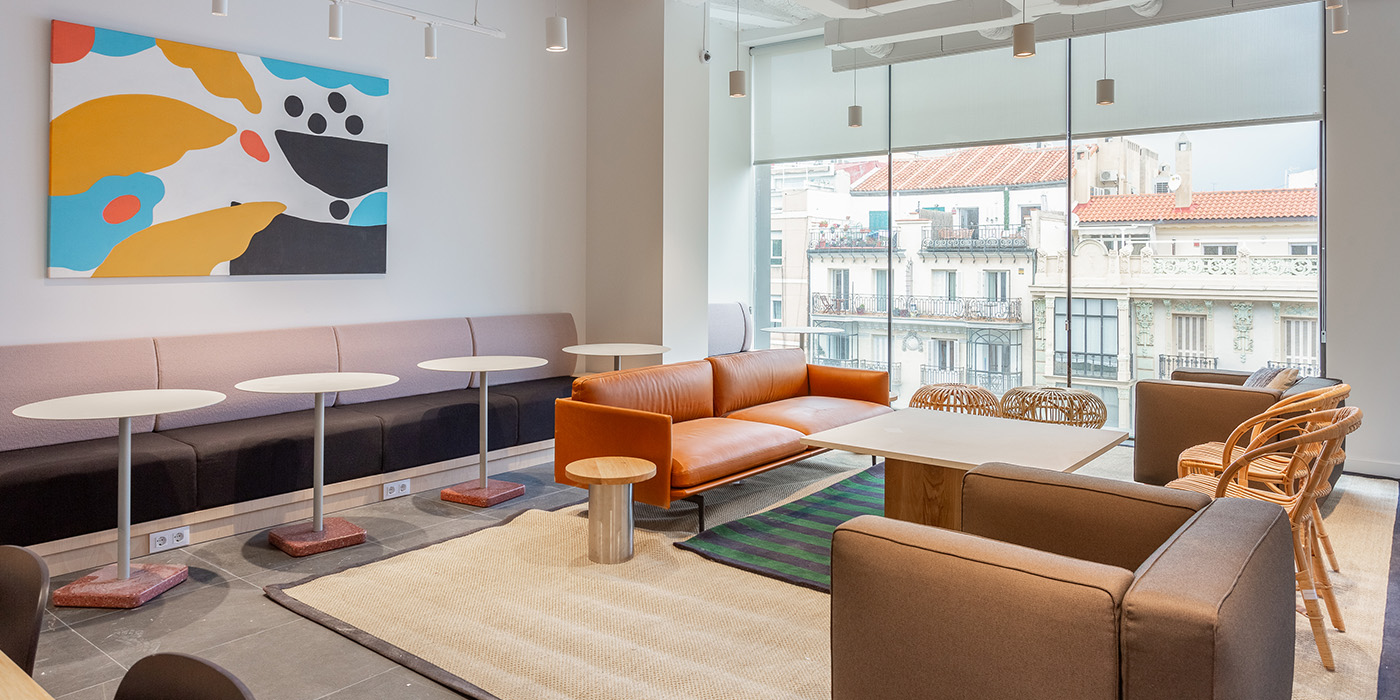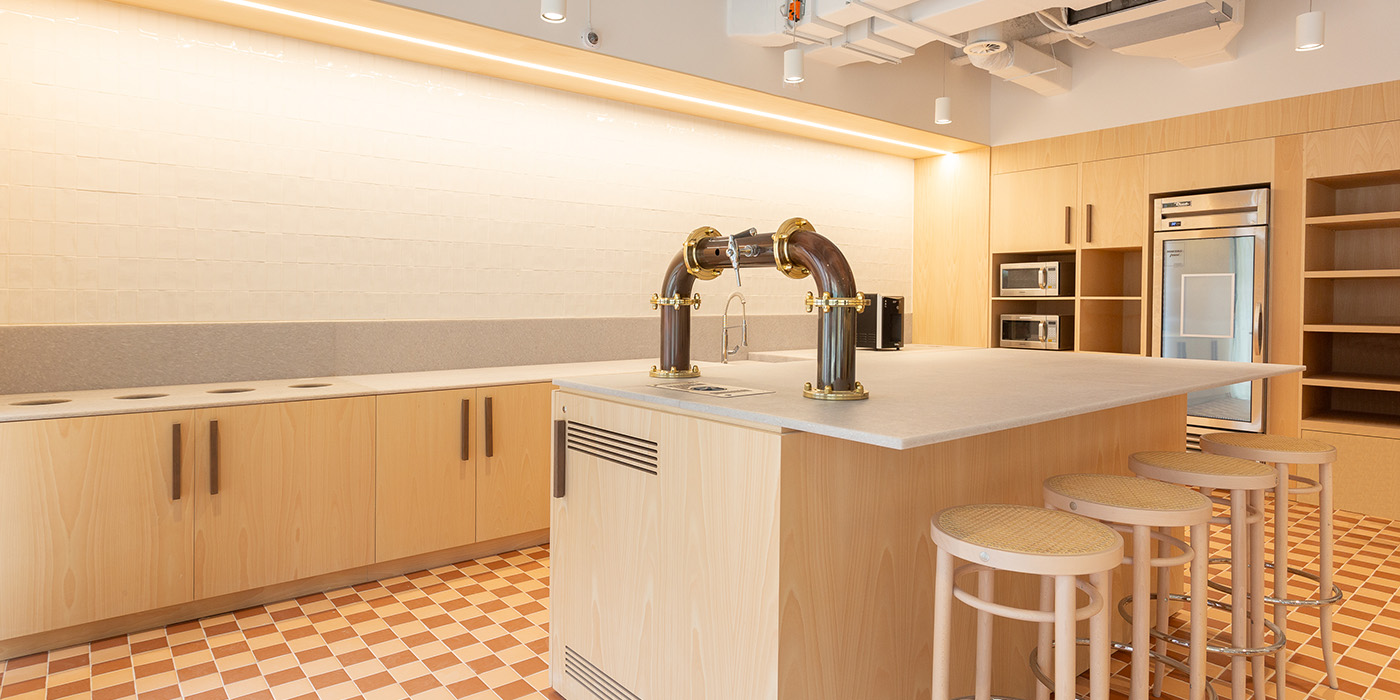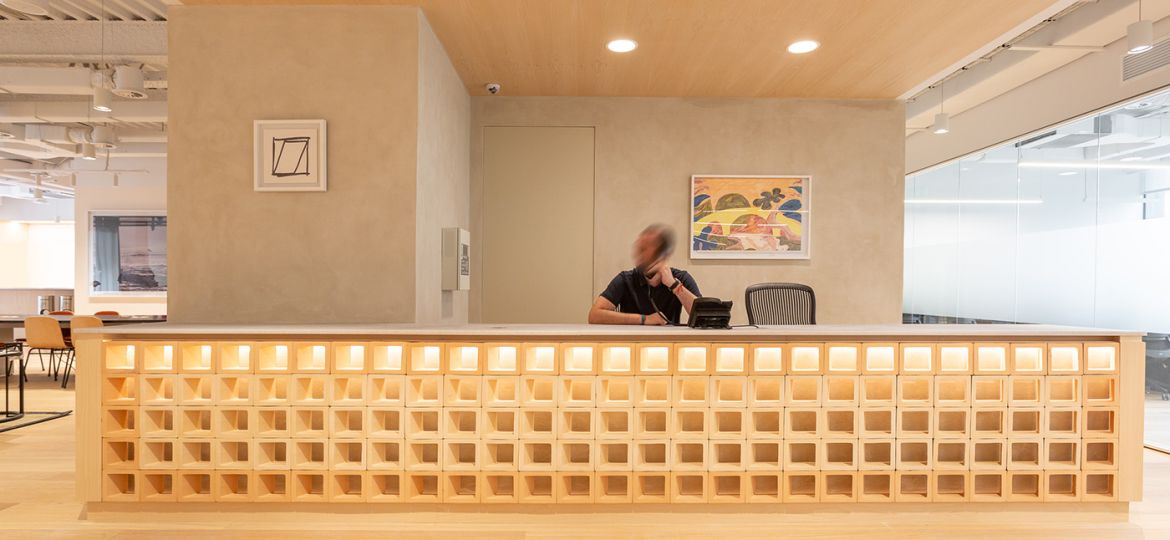In the heart of Madrid, specifically at Calle de Goya 36, stands a symbol of the transformation of contemporary workspaces.
The inauguration of this new coworking centre by WeWork marks a turning point in the conception of work environments, combining sustainability and innovation in a unique seven-storey building. This development is not only the company’s first project in the Spanish capital in three years, but also a testament to how work environments are evolving to meet current needs for flexibility, collaboration, and sustainability.
Located in the distinguished Salamanca district, this centre offers a space meticulously designed to cater to both emerging startups and large corporations. Its minimalist aesthetic is combined with functional design to enhance productivity and cooperation. It offers private offices, suites, and entire floors, along with flexible services such as WeWork All Access and On Demand, in bright spaces that foster inspiration.
The execution of this space by Grupo Cador, a company with more than four decades of experience in the design, construction, and equipping of spaces, evidences a commitment not only to quality and efficiency but also to the well-being of people and respect for the environment. “We held a tender and it was the company that offered us the most competitive budget and had the technical capacity to carry out the work within the scheduled timeframe,” explains Carolina Narciso, Project Manager at WeWork.
With a legacy of 15 successful spaces for WeWork by the team at Cador Mexico, the challenge in Madrid was no less significant: a building of 4,500 m² spread over seven floors, with tight deadlines and a wide variety of materials and actors involved. This required coordination by Grupo Cador of various international actors, such as the management team in Paris, the design team located in London, and the supervisory management and contractors in Madrid.
The start of the work was accompanied by an additional challenge: the dismantling and removal of more than 800 tables and chairs in just five days, allowing the work to be completed in a record time of four months.

Sustainable Commitment
The new WeWork space at Goya 36 not only stands out for its speed of execution and the quality of its finishes but also for its focus on sustainability. In an effort to build a space that respects the environment, Grupo Cador opted for ‘value engineering’, a practice that allows for suggesting alternatives of local and more sustainable materials, reducing the carbon footprint and maintaining or improving the quality of the original materials.
Elements such as recycled PET acoustic panels, natural wood flooring, Castellón stoneware, lime mortar, carbon-neutral carpets, recycled plastic countertops, and clay lattices were included in the design. These choices reflect a deep focus on sustainability, without sacrificing the aesthetics or functionality of the space.
Beyond the technical and environmental aspects, the new WeWork centre in Madrid is a testament to the power of workspaces to foster collaboration, creativity, and well-being. With custom carpentry furniture on each floor and common areas that invite interaction, such as the pantry on the second floor with its ‘beer island’ and direct access to the outdoor patio, this WeWork offers an environment that transcends the mere functionality of a traditional office. Modern finishes, panoramic views of one of Madrid’s most iconic streets, and a wide typology of flexible spaces are elements that contribute to creating a unique work environment.
“We are looking at a project executed on time, with quality and respecting the budget,” in the words of the Project Manager at WeWork, which underscores the importance of selecting strategic partners who understand and share the vision of such ambitious projects.
In a world where flexibility and sustainability are increasingly becoming fundamental pillars of any strategy, WeWork Goya 36 emerges as a living example of the redefinition of work environments, where the quality of space and respect for the environment go hand in hand, paving the way towards the future of work.

You may be interested in: The re-evolution of the workplaces


